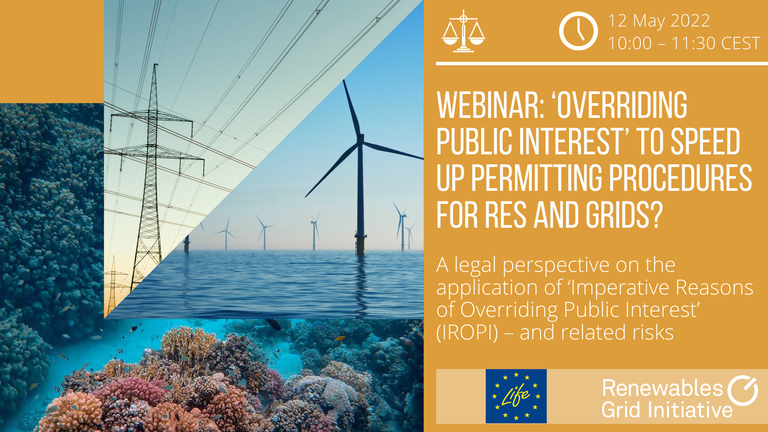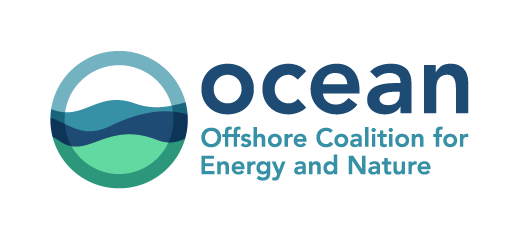Webinar: 'Overriding Public Interest’ to speed up permitting procedures for RES and grids?
- https://offshore-coalition.eu/events/overriding-public-interest2019-to-speed-up-permitting-procedures-for-res-and-grids
- Webinar: 'Overriding Public Interest’ to speed up permitting procedures for RES and grids?
- 2022-05-12T10:00:00+02:00
- 2022-05-12T11:30:00+02:00
- This RGI webinar presents a legal perspective of the framework that defines Imperative Reasons of Overriding Public Interest (IROPI) and its application: What exactly does IROPI mean? What are the reasons that competent authorities can invoke it? How is the concept considered in current nature directives and which consequences could it have for nature protection? How has it been applied in the past – with which outcomes?
- When May 12, 2022 from 10:00 AM to 11:30 AM (Europe/Berlin / UTC200)
- Where Berlin
- Contact Name Cristina Simioli
- Contact Phone +49 30 7677 194533
-
Add event to calendar
iCal

On 18 May, the Commission will publish a guidance document to accelerate deployment of renewable energy sources, mainly solar and wind, but also electricity grids. In this context, the Commission has already called on Member States to consider RES and electricity grids as projects of overriding public interest, therefore qualifying them for faster and favourable permitting procedures.
In our webinar, we want to explain the legal framework that defines Imperative Reasons of Overriding Public Interest (IROPI) and its application: What exactly does IROPI mean? What are the reasons that competent authorities can invoke it? How is the concept considered in current nature directives and which consequences could it have for nature protection? How has it been applied in the past – with which outcomes?
In view of the strong interest to include IROPI in the guidance document, it is also necessary to understand which approaches could preclude the use of IROPI, such as careful spatial planning and the use of sensitivity mapping.
The webinar will take place on 12 May from 10.00 to 11.30 am CEST and will give you the chance to ask anything you would like to know on the subject and discuss open questions you might have with legal experts, project developers, NGO representatives and more.
Our presenter will be Harm Dotinga. Harm is senior lawyer at Vogelbescherming Nederland (BirdLife Netherlands) and is responsible for the legal activities of the organisation related to the protection of wild birds and their habitats at a national and international level. He has been actively involved in initiatives that stimulate a nature inclusive energy transition on land and at sea, including the development and implementation of the Dutch North Sea Agreement that aims to simultaneously facilitate the offshore energy, nature and food transitions. In the past he worked for many years as university lecturer at the School of Law of Utrecht University and senior research associate at the Netherlands Institute for the Law of the Sea (NILOS).
For more information or in case of questions, please get in touch with cristina@renewables-grid.eu
